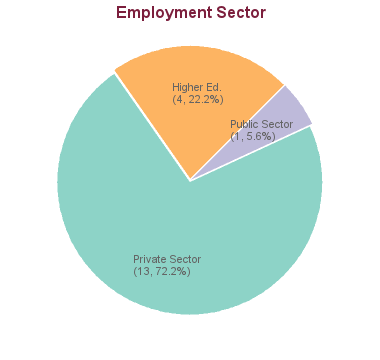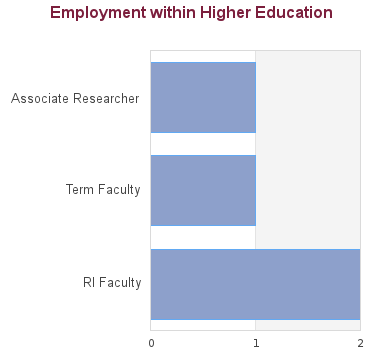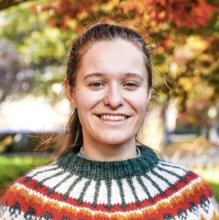Canadian Immigration Updates
Review details about the recently announced changes to study and work permits that apply to master’s and doctoral degree students. Read more
Overview
Theoretically, experimentally, and observationally oriented Master of Science (M.Sc.), Master of Applied Science (M.A.Sc.), and Doctor of Philosophy (Ph.D.) programs are offered in a number of key areas of geophysics. Current interests include topics in observational and theoretical glaciology; climate variability; geodynamics of the crust, mantle, and core of Earth and other planets; geological fluid mechanics; volcanic processes; surface processes on Earth and other planets; origin and structure of planetary magnetic fields; inversion methodologies with application to reflection seismology, mineral exploration, and environmental studies; computational electrodynamics; seismology with observational programs in crustal and upper mantle studies; earthquake studies focused on understanding past and current tectonic processes in Western Canada, and data science including applications of machine learning to Earth scientific problems.
What makes the program unique?
Geophysics at UBC was originally a subprogram within the Department of Physics until 1963 when the Department of Geophysics was formed. In 1972 the Department of Geophysics changed its name to the Department of Geophysics & Astronomy reflecting increased activity in astronomical research and teaching. This department was dissolved in 1996, and geophysics faculty were merged with colleagues from geology, oceanography and, later, atmospheric sciences to become the Department of Earth, Ocean and Atmospheric Sciences (EOAS). EOAS is the largest and most diverse department of its kind in Canada and, accordingly, geophysics graduate students have unparalleled opportunities for engaging in cutting-edge pure and applied research in both traditional geophysical topics and those that cross disciplinary boundaries.
Quick Facts
Program Enquiries
Contact the program
Admission Information & Requirements
1) Check Eligibility
Minimum Academic Requirements
The Faculty of Graduate and Postdoctoral Studies establishes the minimum admission requirements common to all applicants, usually a minimum overall average in the B+ range (76% at UBC). The graduate program that you are applying to may have additional requirements. Please review the specific requirements for applicants with credentials from institutions in:
Each program may set higher academic minimum requirements. Please review the program website carefully to understand the program requirements. Meeting the minimum requirements does not guarantee admission as it is a competitive process.
English Language Test
Applicants from a university outside Canada in which English is not the primary language of instruction must provide results of an English language proficiency examination as part of their application. Tests must have been taken within the last 24 months at the time of submission of your application.
Minimum requirements for the two most common English language proficiency tests to apply to this program are listed below:
TOEFL: Test of English as a Foreign Language - internet-based
Overall score requirement: 100
Reading
22
Writing
22
Speaking
23
Listening
22
IELTS: International English Language Testing System
Overall score requirement: 7.0
Reading
6.5
Writing
6.5
Speaking
7.0
Listening
6.5
Other Test Scores
Some programs require additional test scores such as the Graduate Record Examination (GRE) or the Graduate Management Test (GMAT). The requirements for this program are:
The GRE is not required.
2) Meet Deadlines
January 2026 Intake
Application Open Date
01 April 2025Canadian Applicants
International Applicants
September 2026 Intake
Application Open Date
01 October 2025Canadian Applicants
International Applicants
January 2027 Intake
Application Open Date
01 April 2026Canadian Applicants
International Applicants
3) Prepare Application
Transcripts
All applicants have to submit transcripts from all past post-secondary study. Document submission requirements depend on whether your institution of study is within Canada or outside of Canada.
Letters of Reference
A minimum of three references are required for application to graduate programs at UBC. References should be requested from individuals who are prepared to provide a report on your academic ability and qualifications.
Statement of Interest
Many programs require a statement of interest, sometimes called a "statement of intent", "description of research interests" or something similar.
Supervision
Students in research-based programs usually require a faculty member to function as their thesis supervisor. Please follow the instructions provided by each program whether applicants should contact faculty members.
Instructions regarding thesis supervisor contact for Doctor of Philosophy in Geophysics (PhD)
Citizenship Verification
Permanent Residents of Canada must provide a clear photocopy of both sides of the Permanent Resident card.
4) Apply Online
All applicants must complete an online application form and pay the application fee to be considered for admission to UBC.
Research Information
Research Facilities
In 2012 the new Earth Sciences Building was completed. The $75 million facility was designed to inspire collaboration and creativity across disciplines.
Tuition & Financial Support
Tuition
| Fees | Canadian Citizen / Permanent Resident / Refugee / Diplomat | International |
|---|---|---|
| Application Fee | $116.25 | $168.25 |
| Tuition * | ||
| Installments per year | 3 | 3 |
| Tuition per installment | $1,875.34 | $3,294.66 |
| Tuition per year (plus annual increase, usually 2%-5%) | $5,626.02 | $9,883.98 |
| Int. Tuition Award (ITA) per year (if eligible) | $3,200.00 (-) | |
| Other Fees and Costs | ||
| Student Fees (yearly) | $1,144.10 (approx.) | |
| Costs of living | Estimate your costs of living with our interactive tool in order to start developing a financial plan for your graduate studies. | |
All fees for the year are subject to adjustment and UBC reserves the right to change any fees without notice at any time, including tuition and student fees. Tuition fees are reviewed annually by the UBC Board of Governors. In recent years, tuition increases have been 2% for continuing domestic students and between 2% and 5% for continuing international students. New students may see higher increases in tuition. Admitted students who defer their admission are subject to the potentially higher tuition fees for incoming students effective at the later program start date. In case of a discrepancy between this webpage and the UBC Calendar, the UBC Calendar entry will be held to be correct.
Financial Support
Applicants to UBC have access to a variety of funding options, including merit-based (i.e. based on your academic performance) and need-based (i.e. based on your financial situation) opportunities.
Program Funding Packages
PhD students are guaranteed a minimum salary of CAN$ 25,500 (plus tuition) per year for the first four years, which can consist of research assistantships (RAs) to help professors with their grants and contracts, teaching assistantships (TAs) to help teach courses and labs and grade assignments, scholarships and prizes, and combinations of all the above.
Average Funding
- 6 students received Teaching Assistantships. Average TA funding based on 6 students was $4,230.
- 8 students received Research Assistantships. Average RA funding based on 8 students was $8,567.
- 3 students received Academic Assistantships. Average AA funding based on 3 students was $3,739.
- 8 students received internal awards. Average internal award funding based on 8 students was $14,161.
- 4 students received external awards. Average external award funding based on 4 students was $20,500.
Review methodology
Scholarships & awards (merit-based funding)
All applicants are encouraged to review the awards listing to identify potential opportunities to fund their graduate education. The database lists merit-based scholarships and awards and allows for filtering by various criteria, such as domestic vs. international or degree level.
Graduate Research Assistantships (GRA)
Many professors are able to provide Research Assistantships (GRA) from their research grants to support full-time graduate students studying under their supervision. The duties constitute part of the student's graduate degree requirements. A Graduate Research Assistantship is considered a form of fellowship for a period of graduate study and is therefore not covered by a collective agreement. Stipends vary widely, and are dependent on the field of study and the type of research grant from which the assistantship is being funded.
Graduate Teaching Assistantships (GTA)
Graduate programs may have Teaching Assistantships available for registered full-time graduate students. Full teaching assistantships involve 12 hours work per week in preparation, lecturing, or laboratory instruction although many graduate programs offer partial TA appointments at less than 12 hours per week. Teaching assistantship rates are set by collective bargaining between the University and the Teaching Assistants' Union.
Graduate Academic Assistantships (GAA)
Academic Assistantships are employment opportunities to perform work that is relevant to the university or to an individual faculty member, but not to support the student’s graduate research and thesis. Wages are considered regular earnings and when paid monthly, include vacation pay.
Financial aid (need-based funding)
Canadian and US applicants may qualify for governmental loans to finance their studies. Please review eligibility and types of loans.
All students may be able to access private sector or bank loans.
Foreign government scholarships
Many foreign governments provide support to their citizens in pursuing education abroad. International applicants should check the various governmental resources in their home country, such as the Department of Education, for available scholarships.
Working while studying
The possibility to pursue work to supplement income may depend on the demands the program has on students. It should be carefully weighed if work leads to prolonged program durations or whether work placements can be meaningfully embedded into a program.
International students enrolled as full-time students with a valid study permit can work on campus for unlimited hours and work off-campus for no more than 24 hours a week during academic sessions.
A good starting point to explore student jobs is the UBC Work Learn program or a Co-Op placement.
Tax credits and RRSP withdrawals
Students with taxable income in Canada may be able to claim federal or provincial tax credits.
Canadian residents with RRSP accounts may be able to use the Lifelong Learning Plan (LLP) which allows students to withdraw amounts from their registered retirement savings plan (RRSPs) to finance full-time training or education for themselves or their partner.
Please review Filing taxes in Canada on the student services website for more information.
Cost Estimator
Applicants have access to the cost estimator to develop a financial plan that takes into account various income sources and expenses.
Career Outcomes
18 students graduated between 2005 and 2013. Of these, career information was obtained for 18 alumni (based on research conducted between Feb-May 2016):


RI (Research-Intensive) Faculty: typically tenure-track faculty positions (equivalent of the North American Assistant Professor, Associate Professor, and Professor positions) in PhD-granting institutions
TI (Teaching-Intensive) Faculty: typically full-time faculty positions in colleges or in institutions not granting PhDs, and teaching faculty at PhD-granting institutions
Term Faculty: faculty in term appointments (e.g. sessional lecturers, visiting assistant professors, etc.)
Sample Employers in Higher Education
University of British ColumbiaColumbia University in the City of New York
University of Ottawa
Memorial University of Newfoundland
Sample Employers Outside Higher Education
Black Tusk Geophysics (3)Arcis Seismic Solutions (2)
3point Science
High Power Exploration
Dead Sea and Arava Science Center
Computational Geosciences Inc.
Seabed Geosolutions
Oyu Tolgoi LLC
Baziw Consulting Engineers Ltd.
Chevron
Sample Job Titles Outside Higher Education
Geophysicist (3)Consulting Geophysicist
Geologist, Research scientist
Lead Backend Developer
Advanced Geophysical Software Developer
Senior Geophysicist
President
Senior Earth Scientist
Principal Geophysicist
Superintendent
PhD Career Outcome Survey
You may view the full report on career outcomes of UBC PhD graduates on outcomes.grad.ubc.ca.Disclaimer
These data represent historical employment information and do not guarantee future employment prospects for graduates of this program. They are for informational purposes only. Data were collected through either alumni surveys or internet research.Enrolment, Duration & Other Stats
These statistics show data for the Doctor of Philosophy in Geophysics (PhD). Data are separated for each degree program combination. You may view data for other degree options in the respective program profile.
ENROLMENT DATA
| 2023 | 2022 | 2021 | 2020 | 2019 | |
|---|---|---|---|---|---|
| Applications | 6 | 7 | 11 | 5 | 6 |
| Offers | 0 | 3 | 2 | 0 | 1 |
| New Registrations | 0 | 2 | 1 | 0 | 0 |
| Total Enrolment | 11 | 14 | 14 | 16 | 17 |
Completion Rates & Times
Disclaimer
Research Supervisors
Supervision
Students in research-based programs usually require a faculty member to function as their thesis supervisor. Please follow the instructions provided by each program whether applicants should contact faculty members.
Instructions regarding thesis supervisor contact for Doctor of Philosophy in Geophysics (PhD)
Advice and insights from UBC Faculty on reaching out to supervisors
These videos contain some general advice from faculty across UBC on finding and reaching out to a supervisor. They are not program specific.
Doctoral Citations
| Year | Citation |
|---|---|
| 2016 | Dr. Lin studied the echoes that seismic waves create as they move through the earth. He examined how they can be mapped back to their sources with the help of computer clusters and clever algorithms. This mapping can then be used to help understand and image underground geological structures in more detail than ever before. |
| 2015 | Ice streams are narrow, fast-flowing regions within an ice sheet, and they account for the majority of the Antarctic ice loss. Dr. Haseloff studied the migration of ice streams. Her work allows us to include this process in models of the Antarctic ice sheet, and improves our ability to predict Antarctic ice loss and contribution to sea level rise. |
| 2015 | Dr. Tu's research focuses on using sound waves to detect the internal structure of the earth. He developed a method that uses echoes from the sound waves to reveal more details of the shallow earth structure. By producing a more accurate prediction of geological hazards near the surface, this new approach will lead to much safer drilling operations. |
| 2015 | Dr. Li studied ways to reduce the costs of the technology for seismology imaging. He proposed a new method that can reduce the prohibitively expensive computational cost of imaging and inversion techniques. With his method, the oil and gas industry can obtain images of subsurface oil and gas reservoirs at feasible costs, without sacrificing quality. |
| 2015 | Dr. Marchant studied the ways in which electromagnetic geophysical experiments are affected by chargeability. Chargeable materials can indicate the presence of metals and mineral deposits. His work resulted in new methods to simulate and recognize the effects of chargeability, and provided new tools that will benefit the mineral exploration industry. |
| 2014 | Dr. Yang proposes a new framework for numerical modeling of electromagnetic data in geophysics. This approach is able to dramatically speed up the processing of data, making the interpretation much more efficient than before. His research provides geoscientists with a more powerful tool for imaging the earth's structure in a variety of problems. |
| 2014 | Dr. Leaney completed his PhD in Geophysics. His thesis dealt with the influence of elastic anisotropy on micro-earthquakes generated during hydraulic fracturing. A data set from central Alberta was analyzed using newly developed techniques, which should benefit the oil and gas industry in Canada, the US and the rest of the world. |
| 2014 | Dr. Blanchette-Guertin developed new tools and analytical methods to study seismic energy propagation in highly scattering environments, such as on the Moon. His work resulted in a better understanding of shallow lunar structures and offers new avenues to study the interiors of other scattering bodies, such as asteroids and Mars. |
| 2014 | Dr. Royer devised deterministic and statistical models of seismic deconvolution. She exploited the latter model to generate low frequency earthquake templates from tectonic tremor. Its application to the Cascadia subduction zone provides insight into the plate boundary properties. |
| 2014 | Dr. Winslow studied Mercury's magnetic field and its interaction with the solar wind. She developed a new method to measure the magnetic field strength at the surface of planets using high altitude spacecraft magnetic field and plasma observations. She applied this technique to Mercury, making the first measurements of its surface magnetic field. |
Pages
Sample Thesis Submissions
Further Information
Specialization
Current interests include topics in observational and theoretical glaciology; climate variability; geodynamics of the crust, mantle, and core of Earth and other planets; geological fluid mechanics; volcanic processes; origin and structure of planetary magnetic fields; reflection seismology; time-series analysis and wavelet processing; inversion methodologies with application to reflection seismology, mineral exploration, and environmental studies; computational electrodynamics; seismology with observational programs in crustal and upper mantle studies; earthquake studies focused on understanding past and current tectonic processes in Western Canada; and theoretical model studies to investigate wave propagation in laterally heterogeneous media.
Program Website
Faculty Overview
Academic Unit
Program Identifier
Classification
January 2026 Intake
September 2026 Intake
January 2027 Intake
Program Enquiries
Contact the program
Departments/Programs may update graduate degree program details through the Faculty & Staff portal. To update contact details for application inquiries, please use this form.

Why should you choose UBC?
From academic excellence and modern facilities to our diverse degree program listings to being named one of the “most innovative universities” by Reuters in 2019, UBC has a lot to offer.




